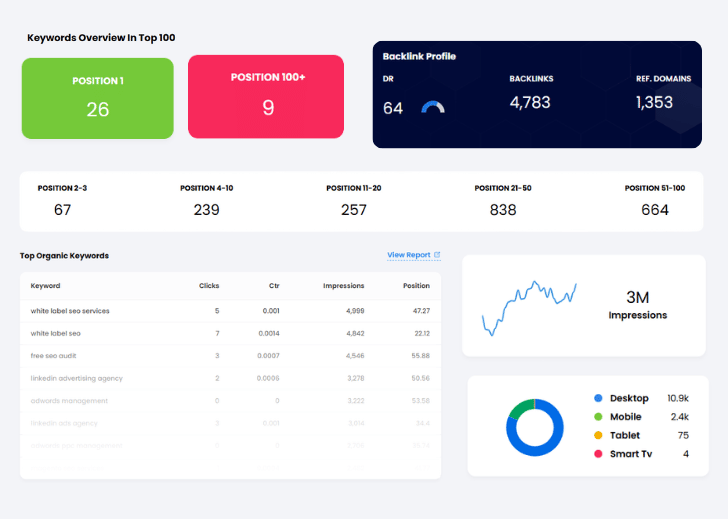Google AI summaries have quickly become commonplace on search engine results pages. It’s changed the game for the world of SEO, and now, anyone with a website is aiming to rank for AI.
What Is Entity Optimisation and Why It Matters in AI Search?
Entities in SEO refer to any single thing that has a distinct identity/meaning, such as a person, a product, an organization, or a place. They are different from single keywords; entities are often what keywords refer to, as they are the subject.
Google AI entity relationships are built in knowledge graphs. Google’s Knowledge Graph is a network showing all the different connections between entities, which helps AI understand what each entity is.
For entity-based SEO, it’s important to focus on optimizing for semantic search by using structured data, which helps search engines understand a content’s purpose and context. In the AI era, these efforts matter, as optimizing for AI search means being more visible to your audience. It’s a key part of any SEO strategy.
How Google AI Overviews and LLMs Use Entities
When looking at how Google AI Overviews and how LLMs use entities, it’s all about using a variety of sources for the web.
Named Entity Recognition
AI summaries and LLM algorithms use a structure called Named Entity Recognition, which essentially identifies any named identities within that content. For example, the name of a place, a location, or a brand will flag as a name. It goes beyond just looking at the words, though – it tracks the meaning and relationships between the entities. In turn, this influences AI SERP results.
Want to build better content for your website? Check out our content writing and content strategy services. You can also check out our blogger outreach services.
On-Page Entity Optimisation Techniques
On-page entity optimisation focuses on clear, understandable content that search engines can digest easily. Here are some techniques you should use for better SEO for AI.
- Schema for Entities: This refers to structured data markup that gets added to website pages to tell search engines about the entities mentioned and the relationships between the entities. One common schema markup is org, and using this helps Google’s AI better understand the context of your keywords.
- Entity Linking: Provide clear contextual linking between entities. Of course, using schema markup is crucial, but also consider an internal linking strategy (our link building services can help here) and always explicitly say exactly what an entity is within content.
- Wikipedia-Level Definitions: When defining an entity, use extremely clear definitions on the level of Wikipedia. Be concise, factual, and to the point.
All of these strategies will improve your on page SEO for improved semantic context.
How to Build Topical Authority Around Entities
AI algorithms use topic modeling and knowledge panels to search for entities, and you want to make it as easy as possible.
When building topical authority for AI search, you want to create entity clusters, which are essentially a content strategy in which the content is built around one specific topic related to your site.
To create content clusters, start by identifying some pillar topics (for example, healthy foods or digital marketing) and use these as pillar pages. From there, identify more specific topics underneath these pillar topics – these are your cluster topics and have a deeper entity depth. All of this is a way of creating content silos, which creates a content structure that LLMs can navigate.
To boost topical authority around entities, use an internal linking SEO strategy for entity reinforcements and create a glossary-style hub page for major terms and entities. Our managed SEO services cover this.
Off-Page Entity Signals and Brand Validation
As well as on-page SEO, off-page SEO for AI also matters, and there are a few things you can do here for better brand validation, entity verification, and digital PR.
- Get Listed on Knowledge Databases: Getting listed on knowledge databases, such as Wikidata, Crunchbase, and LinkedIn, will help your brand entity optimisation by building brand authority. This is also known as citation SEO.
- Use Consistent NAP (Name, Address, Phone): Always use the same information for your brand’s name, address, and phone number across all platforms.
- Build Authority Links: Having credible websites pointing to your brand is always helpful. These entity backlinks will endorse your site and signal to AI algorithms that your content is trustworthy. You can build more authority links through curated links (or niche edits), which means adding backlinks to already existing web pages.
Connecting Entities to Trusted Knowledge Graphs
Entities connect to Google Knowledge Graph through entity graph linking, which is a huge database that stores information about entities. You can even see the Google Knowledge Panel on the right side of Google search results when searching for particular entities.
Knowledge graph SEO involves building links between your brand and verified entities using schema markup and linked data. Building citations is also key here – for example, getting your brand referenced in Wikidata.
Tracking Entity Visibility and Measuring AI Impact
To track entity SEO, use entity visibility tools such as entity analytics tools, brand monitoring tools, LLM tracking, and GSC reporting to track impressions, queries, and backlinks. At the same time, you can perform manual checks to see your AI impact – for this, you could regularly search for your entities. You can then analyze these trends to make better entity SEO decisions going forward. Our reporting tool Click Insights tracks and monitors AI overviews and LLM referral traffic to help you understand your overall AI and LLM visibility.
Do you want an easier way to measure AI SEO performance? Our SEO services are for you.

Common Mistakes to Avoid in Entity SEO
Entity SEO is a fantastic way to show AI algorithms that you have a strong, authoritative brand, but there are also entity SEO mistakes you may be making, leading to AI SEO issues.
- Inconsistent Entity Data: Having inconsistent information about your brand, author, or organization across platforms will only work against you and lead to low trust signals.
- Non-existent or Bad Schema Markup: You need this structured data to give context to LLMs; non-existent or poor-quality schema markups will only hinder your efforts.
- Poor Linking Structure: Poor linking structure will only confuse algorithms.
Overloading Pages with Entities Without Structure: Remember, AI algorithms rely on clean content structure for context, so overloading pages with entities without any good structure is useless.
Conclusion: Becoming Entity-First in the AI Search Era
In the current world of LLMs and AI overviews, entity optimisation matters. It is all about building a clear, validated digital presence through an entity-first SEO strategy. The future of search is already here, and AI search optimisation not only sees you climbing the ranks, but ranking in those AI overviews that show at the very top of SERPs.
Do you need help with semantic indexing or LLM SEO planning? Here at Click Intelligence, we are forward-thinkers who always adopt the latest strategies to boost online visibility. Get in touch today for an SEO audit or to learn more about our white label reseller SEO services.

